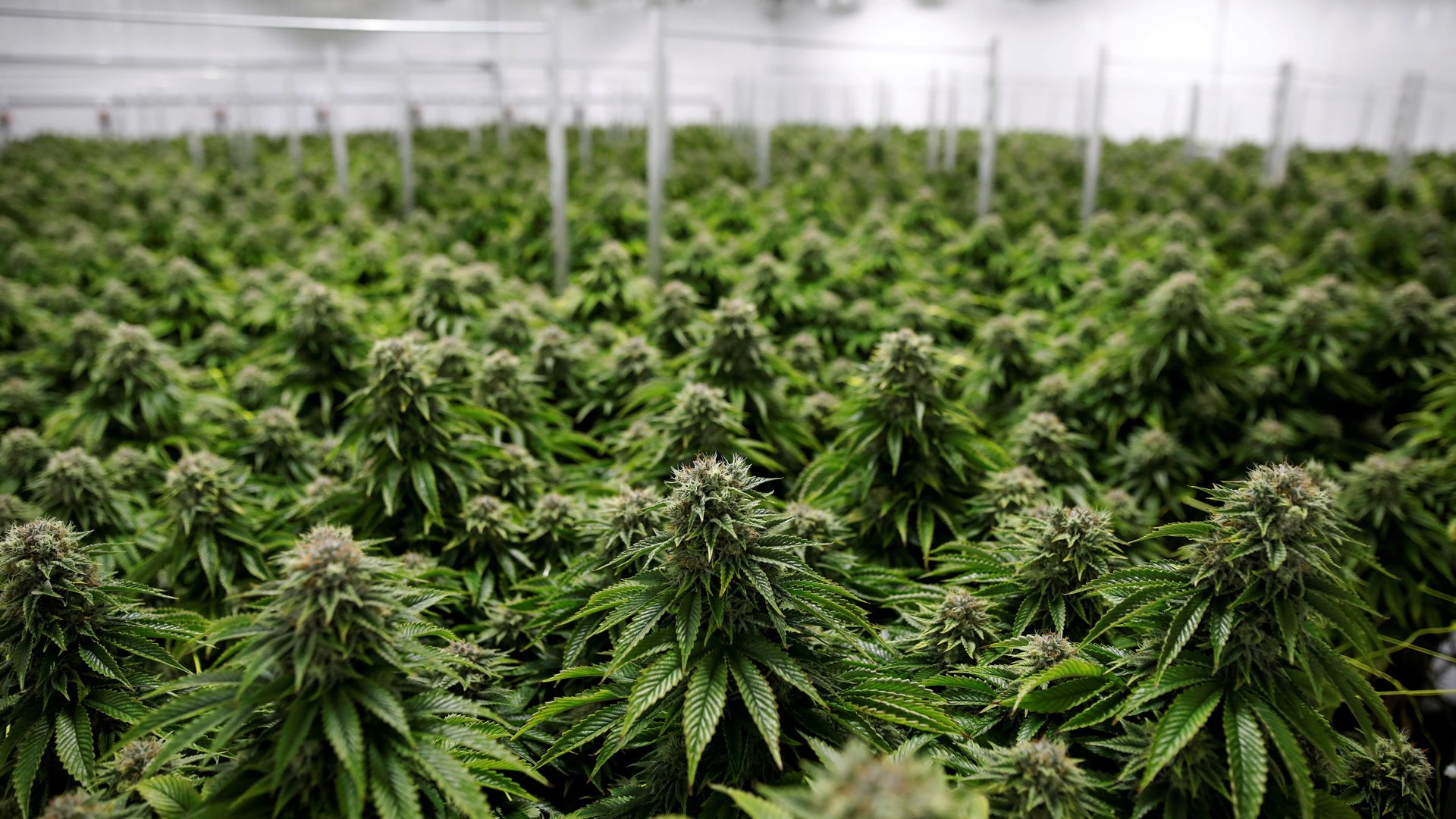Which states legalized marijuana and what will it mean for their coffers?
Mail-in ballots are still being counted in several states, but a clear winner from Tuesday night’s US election is not red or blue but green.


Mail-in ballots are still being counted in several states, but a clear winner from Tuesday night’s US election is not red or blue but green.
Voters in New Jersey, South Dakota, Montana, and Arizona approved ballot measures to legalize recreational marijuana, which was also approved for medical use in South Dakota and Mississippi. They join 11 other states that already allow recreational sales and purchases: Alaska, California, Colorado, Illinois, Maine, Massachusetts, Michigan, Nevada, Oregon, Vermont, and Washington.
An avenue for extra funds
Legalization has proven a boon to state budgets, a prospect with extra appeal as Covid-19 takes a toll on the US economy. Tax revenues can be generated from plant cultivation, oil extraction, production, retail sales, staffing, licensing, as well as when distributors sell or transfer products to a retail store or manufacturer, also known as excise taxes. There can also be spillover effects: One study estimated that Colorado hotels booked an extra $130 million in revenue in the year after the state legalized marijuana.
These additional funds can go to schools; programs for mental health, alcoholism, and drug treatment; state police departments and law enforcement; as well as health authorities.
Under the legalization measures for each state, the sales tax on recreational marijuana will be 15% in South Dakota, 16% in Arizona, and 20% in Montana. In New Jersey, marijuana will be subject to a general sales tax and could be subject to additional taxes at the wholesale or manufacturer level, depending on future legislation.
What happens next?
Experts say the amount of tax revenue generated by legalization depends on a state’s population, demographics, tourism base, production levels, and retail locations. Other factors include pre-existing legalization of medical marijuana, prior investment and infrastructure, and any local stigma that exists around the federally classified substance.
Still, the tax revenues can grow quickly: In 2017, Oregon generated $70 million in cannabis tax revenue in the first fiscal year of its recreational program. By 2019, that had grown to $102 million.
In Arizona, a state budget committee estimated tax and licensing fees from marijuana at $166 million annually, once the industry matures in a few years. The Arizona Department of Revenue puts that figure at $145 million by the third full year of legalization, while legalization supporters are even more optimistic, estimating $300 million in new revenue during the first year and $3 billion in revenue over a decade.
The Tax Foundation estimates that by fiscal 2025, when these new markets for marijuana are mature, excise tax revenues will total $38.5 million for Montana and $29.3 million for South Dakota.
What else to expect? Tax attorney Courtney Richardson says legalization should also bring down the cost of marijuana products where there was already an illegal market. Says Richardson, “Your taxes shouldn’t bring it over the black-market price.”